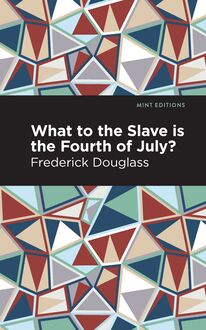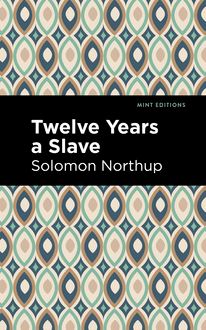-
 Univers
Univers
-
 Ebooks
Ebooks
-
 Livres audio
Livres audio
-
 Presse
Presse
-
 Podcasts
Podcasts
-
 BD
BD
-
 Documents
Documents
-
- Cours
- Révisions
- Ressources pédagogiques
- Sciences de l’éducation
- Manuels scolaires
- Langues
- Travaux de classe
- Annales de BEP
- Etudes supérieures
- Maternelle et primaire
- Fiches de lecture
- Orientation scolaire
- Méthodologie
- Corrigés de devoir
- Annales d’examens et concours
- Annales du bac
- Annales du brevet
- Rapports de stage
La lecture à portée de main
Vous pourrez modifier la taille du texte de cet ouvrage
Découvre YouScribe en t'inscrivant gratuitement
Je m'inscrisDécouvre YouScribe en t'inscrivant gratuitement
Je m'inscrisEn savoir plus
Vous pourrez modifier la taille du texte de cet ouvrage
En savoir plus

Description
The Garies and Their Friends (1857) is a novel by Frank J. Webb. Published at the height of the abolitionist movement, Webb’s novel was only the second in history by an African American writer. Although it is his only novel, The Garies and Their Friends is a testament to Webb’s skills as a writer and political thinker, a man who explored themes of racial passing and Northern racism decades before such topics were common in African American literature. Although his novel was relatively unpopular—perhaps due to his refusal to sentimentalize both Northern white and free Black communities—it gained scholarly attention and critical acclaim in the latter half of the twentieth century, and has since been recognized as a significant work of African American fiction. Clarence Garie, a white planter from Georgia, and his common-law wife Emily, raise their two children together with the acceptance of a Southern community accustomed to such relationships between masters and slaves. Fearing what should happen to her and her children if Clarence were to die, Emily persuades her husband to move their family to Philadelphia, where they hope to be accepted by the city’s well-established community of free African Americans. When they get there, however, they encounter prejudice from their neighbors as well as the growing Irish immigrant population. Together with their friends the Ellises, the Garie family becomes the target of vicious attacks by George Stevens, a bigoted attorney looking to incite a race riot in the city. Soon, tragedy strikes, exposing the deep-rooted divides of a nation only a few years away from civil war. With a beautifully designed cover and professionally typeset manuscript, this edition of Frank J. Webb’s The Garies and Their Friends is a classic work of African American literature reimagined for modern readers.
Sujets
Informations
| Publié par | Mint Editions |
| Date de parution | 03 août 2021 |
| Nombre de lectures | 0 |
| EAN13 | 9781513297446 |
| Langue | English |
| Poids de l'ouvrage | 1 Mo |
Informations légales : prix de location à la page 0,0500€. Cette information est donnée uniquement à titre indicatif conformément à la législation en vigueur.
Extrait
The Garies and Their Friends
Frank J. Webb
The Garies and Their Friends was first published in 1857.
This edition published by Mint Editions 2021.
ISBN 9781513295947 | E-ISBN 9781513297446
Published by Mint Editions®
minteditionbooks
Publishing Director: Jennifer Newens
Design & Production: Rachel Lopez Metzger
Project Manager: Micaela Clark
Typesetting: Westchester Publishing Services
C ONTENTS
I . I N WHICH THE R EADER IS INTRODUCED TO A F AMILY OF P ECULIAR C ONSTRUCTION
II . A G LANCE AT THE E LLIS F AMILY
III . C HARLIE’S T RIALS
IV . I N WHICH M R. W INSTON FINDS AN O LD F RIEND
V . T HE G ARIES DECIDE ON A C HANGE
VI . P LEASANT N EWS
VII . M RS. T HOMAS HAS HER T ROUBLES
VIII . T ROUBLE IN THE E LLIS F AMILY
IX . B REAKING UP
X . A NOTHER P ARTING
XI . T HE N EW H OME
XII . M R. G ARIE’S N EIGHBOUR
XIII . H OPES CONSUMMATED
XIV . C HARLIE AT W ARMOUTH
XV . M RS. S TEVENS GAINS A T RIUMPH
XVI . M R. S TEVENS MAKES A D ISCOVERY
XVII . P LOTTING
XVIII . M R. S TEVENS FALLS INTO B AD H ANDS
XIX . T HE A LARM
XX . T HE A TTACK
XXI . M ORE H ORRORS
XXII . A N A NXIOUS D AY
XXIII . T HE L OST O NE F OUND
XXIV . C HARLIE D ISTINGUISHES H IMSELF
XXV . T HE H EIR
XXVI . H OME AGAIN
XXVII . S UDBURY
XXVIII . C HARLIE SEEKS E MPLOYMENT
XXIX . C LOUDS AND S UNSHINE
XXX . M ANY Y EARS AFTER
XXXI . T HE T HORN RANKLES
XXXII . D EAR O LD E SS AGAIN
XXXIII . T HE F ATAL D ISCOVERY
XXXIV . “ M URDER WILL OUT”
XXXV . T HE W EDDING
XXXVI . A ND THE L AST
I
I N WHICH THE R EADER IS INTRODUCED TO A F AMILY OF P ECULIAR C ONSTRUCTION
I t was at the close of an afternoon in May, that a party might have been seen gathered around a table covered with all those delicacies that, in the household of a rich Southern planter, are regarded as almost necessaries of life. In the centre stood a dish of ripe strawberries, their plump red sides peeping through the covering of white sugar that had been plentifully sprinkled over them. Geeche limes, almost drowned in their own rich syrup, temptingly displayed their bronze-coloured forms just above the rim of the glass that contained them. Opposite, and as if to divert the gaze from lingering too long over their luscious beauty, was a dish of peaches preserved in brandy, a never-failing article in a Southern matron’s catalogues of sweets. A silver basket filled with a variety of cakes was in close proximity to a plate of corn-flappers, which were piled upon it like a mountain, and from the brown tops of which trickled tiny rivulets of butter. All these dainties, mingling their various odours with the aroma of the tea and fine old java that came steaming forth from the richly chased silver pots, could not fail to produce a very appetising effect.
There was nothing about Mr. Garie, the gentleman who sat at the head of the table, to attract more than ordinary attention. He had the ease of manner usual with persons whose education and associations have been of a highly refined character, and his countenance, on the whole, was pleasing, and indicative of habitual good temper.
Opposite to him, and presiding at the tea-tray, sat a lady of marked beauty. The first thing that would have attracted attention on seeing her were her gloriously dark eyes. They were not entirely black, but of that seemingly changeful hue so often met with in persons of African extraction, which deepens and lightens with every varying emotion. Hers wore a subdued expression that sank into the heart and at once riveted those who saw her. Her hair, of jetty black, was arranged in braids; and through her light-brown complexion the faintest tinge of carmine was visible. As she turned to take her little girl from the arms of the servant, she displayed a fine profile and perfectly moulded form. No wonder that ten years before, when she was placed upon the auction-block at Savanah, she had brought so high a price. Mr. Garie had paid two thousand dollars for her, and was the envy of all the young bucks in the neighbourhood who had competed with him at the sale. Captivated by her beauty, he had esteemed himself fortunate in becoming her purchaser; and as time developed the goodness of her heart, and her mind enlarged through the instructions he assiduously gave her, he found the connection that might have been productive of many evils, had proved a boon to both; for whilst the astonishing progress she made in her education proved her worthy of the pains he took to instruct her, she returned threefold the tenderness and affection he lavished upon her.
The little girl in her arms, and the boy at her side, showed no trace whatever of African origin. The girl had the chestnut hair and blue eyes of her father; but the boy had inherited the black hair and dark eyes of his mother. The critically learned in such matters, knowing his parentage, might have imagined they could detect the evidence of his mother’s race, by the slightly mezzo-tinto expression of his eyes, and the rather African fulness of his lips; but the casual observer would have passed him by without dreaming that a drop of negro blood coursed through his veins. His face was expressive of much intelligence, and he now seemed to listen with an earnest interest to the conversation that was going on between his father and a dark-complexioned gentleman who sat beside him.
“And so you say, Winston, that they never suspected you were coloured?”
“I don’t think they had the remotest idea of such a thing. At least, if they did, they must have conquered their prejudices most effectually, for they treated me with the most distinguished consideration. Old Mr. Priestly was like a father to me; and as for his daughter Clara and her aunt, they were politeness embodied. The old gentleman was so much immersed in business, that he was unable to bestow much attention upon me; so he turned me over to Miss Clara to be shown the lions. We went to the opera, the theatre, to museums, concerts, and I can’t tell where all. The Sunday before I left I accompanied her to church, and after service, as we were coming out, she introduced me to Miss Van Cote and her mamma. Mrs. Van Cote was kind enough to invite me to her grand ball.”
“And did you go?” interrupted Mr. Garie.
“Of course, I did—and what is more, as old Mr. Priestly has given up balls, he begged me to escort Clara and her aunt.”
“Well, Winston, that is too rich,” exclaimed Mr. Garie, slapping his hand on the table, and laughing till he was red in the face; “too good, by Jove! Oh! I can’t keep that. I must write to them, and say I forgot to mention in my note of introduction that you were a coloured gentleman. The old man will swear till everything turns blue; and as for Clara, what will become of her? A Fifth-avenue belle escorted to church and to balls by a coloured gentleman!” Here Mr. Garie indulged in another burst of laughter so side-shaking and merry, that the contagion spread even to the little girl in Mrs. Garie’s arms, who almost choked herself with the tea her mother was giving her, and who had to be hustled and shaken for some time before she could be brought round again.
“It will be a great triumph for me,” said Mr. Garie. “The old man prides himself on being able to detect evidences of the least drop of African blood in any one; and makes long speeches about the natural antipathy of the Anglo-Saxon to anything with a drop of negro blood in its veins. Oh, I shall write him a glorious letter expressing my pleasure at his great change of sentiment, and my admiration of the fearless manner in which he displays his contempt for public opinion. How he will stare! I fancy I see him now, with his hair almost on end with disgust. It will do him good: it will convince him, I hope, that a man can be a gentleman even though he has African blood in his veins. I have had a series of quarrels with him,” continued Mr. Garie; “I think he had his eye on me for Miss Clara, and that makes him particularly fierce about my present connection. He rather presumes on his former great intimacy with my father, and undertakes to lecture me occasionally when opportunity is afforded. He was greatly scandalized at my speaking of Emily as my wife; and seemed to think me cracked because I talked of endeavouring to procure a governess for my children, or of sending them abroad to be educated. He has a holy horror of everything approaching to amalgamation; and of all the men I ever met, cherishes the most unchristian prejudice against coloured people. He says, the existence of “a gentleman” with African blood in his veins, is a moral and physical impossibility, and that by no exertion can anything be made of that description of people. He is connected with a society for the deportation of free coloured people, and thinks they ought to be all sent to Africa, unless they are willing to become the property of some good master.”
“Oh, yes; it is quite a hobby of his,” here interposed Mr. Winston. “He makes lengthy speeches on the subject, and has published two of them in pamphlet form. Have you seen them?”
“Yes, he sent them to me. I tried to get through one of them, but it was too heavy, I had to give it up. Besides, I had no patience with them; they abounded in mis-statements respecting the free coloured people. Why even here in the slave states—in the cities of Savanah and Charleston—they are much better situated than he describes them to be in New York; and since they can and do prosper here, where they have such tremendous difficulties to encounter, I know they cannot be in the condition he paints, in a state where they are relieved from many of the oppressions they labour under here. And, on questioning him on the subject, I found he was entirely unacquainted with coloured people; profoundly ignorant as to the real facts of their case. He had never been within a coloured church or school; did not even know that they had a literary society amongst t
-
 Univers
Univers
-
 Ebooks
Ebooks
-
 Livres audio
Livres audio
-
 Presse
Presse
-
 Podcasts
Podcasts
-
 BD
BD
-
 Documents
Documents
-
Jeunesse
-
Littérature
-
Ressources professionnelles
-
Santé et bien-être
-
Savoirs
-
Education
-
Loisirs et hobbies
-
Art, musique et cinéma
-
Actualité et débat de société
-
Jeunesse
-
Littérature
-
Ressources professionnelles
-
Santé et bien-être
-
Savoirs
-
Education
-
Loisirs et hobbies
-
Art, musique et cinéma
-
Actualité et débat de société
-
Actualités
-
Lifestyle
-
Presse jeunesse
-
Presse professionnelle
-
Pratique
-
Presse sportive
-
Presse internationale
-
Culture & Médias
-
Action et Aventures
-
Science-fiction et Fantasy
-
Société
-
Jeunesse
-
Littérature
-
Ressources professionnelles
-
Santé et bien-être
-
Savoirs
-
Education
-
Loisirs et hobbies
-
Art, musique et cinéma
-
Actualité et débat de société
- Cours
- Révisions
- Ressources pédagogiques
- Sciences de l’éducation
- Manuels scolaires
- Langues
- Travaux de classe
- Annales de BEP
- Etudes supérieures
- Maternelle et primaire
- Fiches de lecture
- Orientation scolaire
- Méthodologie
- Corrigés de devoir
- Annales d’examens et concours
- Annales du bac
- Annales du brevet
- Rapports de stage




















